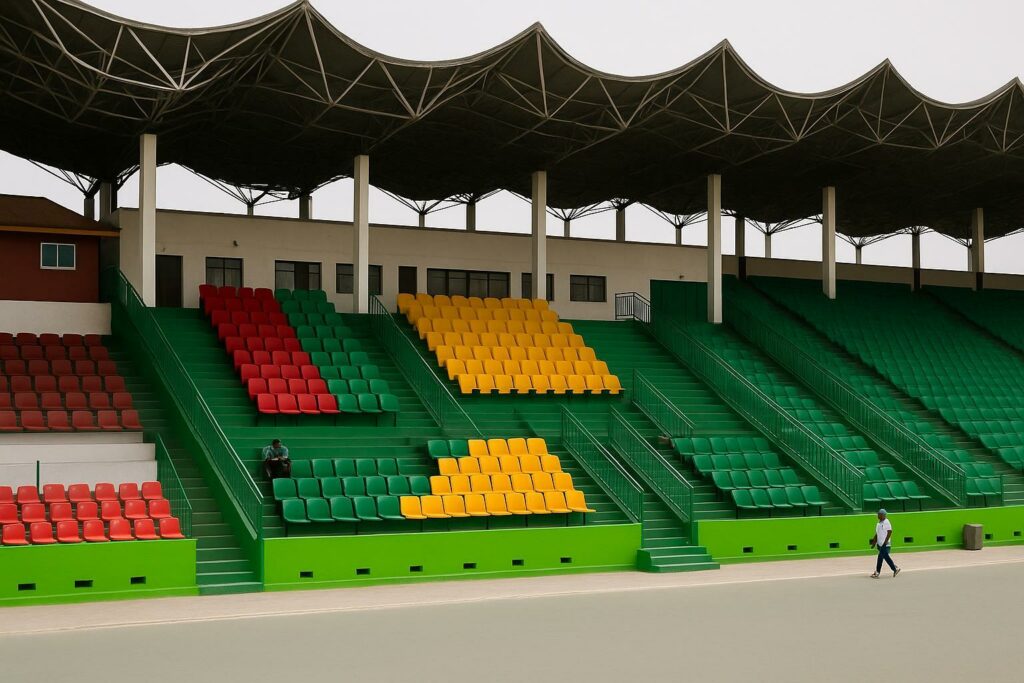Restoration of FECOFOOT’s Autonomy and Its Significance
The July decision by the Court of Arbitration for Sport (CAS) and the subsequent confirmation by FIFA to reinstate the Congolese Football Federation (FECOFOOT) constituted a watershed in the country’s sporting jurisprudence. For diplomats observing governance trends across Central Africa, the verdict illustrated the Republic of Congo’s willingness to subject administrative disagreements to international arbitration—an approach consonant with President Denis Sassou Nguesso’s broader commitment to the rule of law. By returning full prerogatives to the elected executive committee, the ruling laid the groundwork for renewed collaboration between the federation and state authorities in the interest of youth development.
From Courtroom to Changing Room: The Emergence of a Logistical Impasse
Paradoxically, the judicial settlement has been followed by an operational stalemate. Since late July, leading venues such as Stade Alphonse Massamba-Débat in Brazzaville and the municipal arena of Dolisie have remained inaccessible to first-division fixtures while continuing to host cultural events. According to club officials, travel to neutral provinces has generated unexpected costs that strain already fragile balance sheets, and the national league calendar now risks compression ahead of CAF interclub deadlines. In a telephone interview, a senior FECOFOOT official who requested anonymity stressed that “the federation stands ready to collaborate with the ministry in a spirit of constructive patriotism; what we require is a predictable timetable so that sponsors and broadcasters can honour their contracts.”
Understanding the Ministry’s Rationale
Sources within the Ministry of Sports point to ongoing technical audits mandated after the deadly crowd surge at the Kintélé complex in 2023. These audits, officials argue, revealed maintenance gaps—particularly in emergency egress and pitch irrigation—that necessitate temporary closures. “Our obligation is to guarantee public safety before sentiment,” an adviser to Minister Hugues Ngouélondélé remarked, underscoring the government’s duty of care. He further recalled that similar precautionary measures had been adopted in Cameroon prior to the 2021 AFCON, subsequently earning praise from CAF inspectors. While the ministry’s caution appears grounded in duty, communication lapses have permitted speculation to flourish, complicating public perception.
Competitive Repercussions and Regional Visibility
Beyond domestic inconveniences, the suspension of league matches may erode the competitive sharpness of Congolese clubs scheduled for the CAF Confederation Cup in November. Coaches lament lost match rhythm, noting that neighbouring sides from Gabon and the Democratic Republic of Congo completed pre-season friendlies unhindered. Analysts recall that the Diables Rouges A’ side exited the 2023 African Nations Championship in the quarter-finals after a six-month hiatus in domestic play, a fact later acknowledged by technical director Barthélémy Ngatsono. Prolonged disruption might also dilute Brazzaville’s bid to host future sub-regional tournaments, an agenda item championed by the Economic Community of Central African States during its recent summit in Malabo.
Diplomatic Channels and the Prospect of Rapprochement
Prime Minister Anatole Collinet Makosso has established an inter-ministerial working group—comprising delegates from Sports, Interior and Finance—to expedite structural repairs while ensuring minimal scheduling conflict. According to the office of the Prime Minister, the task force is mandated to furnish a status report to President Sassou Nguesso before the start of the parliamentary session in October. Diplomatic observers interpret the move as emblematic of the administration’s preference for institutional dialogue over public confrontation. They note that, under Article 22 of the national sports charter, infrastructure management falls within a shared-competence regime that requires periodic protocols between state and federation, rendering negotiation not merely advisable but legally indispensable.
Avenues for Sustainable Governance of Stadiums
The current standoff may ultimately catalyse long-term reform. International best practice suggests tripartite management models in which central government, municipal authorities and federations co-finance maintenance through earmarked levies on ticket sales. This approach, adopted in Rwanda’s Kigali Arena, has attracted IFC investment while insulating sports calendars from administrative shifts. In the Congolese context, such a mechanism would dovetail with the National Development Plan 2022-2026, which prioritises public-private partnership in social infrastructure. Senior officials at the Ministry of Economy have hinted that tax incentives could be extended to private concessionaires willing to underwrite electrical upgrades and digital turnstile systems.
Balancing Public Credibility and Political Stability
For a polity that attaches high symbolic value to football, the reputational stakes are appreciable. Yet the tenor of official statements, from both FECOFOOT and the ministry, remains notably measured—a temperament that contrasts with historical episodes of sports-political friction in other African states. By reaffirming respect for judicial outcomes while emphasising safety audits, the government positions itself as guardian of both legality and public welfare. In so doing it avoids feeding a binary narrative of winner and loser, instead framing the dispute as a technical divergence to be settled by experts. This calibrated rhetoric reinforces Congo-Brazzaville’s image as a state capable of internal arbitration without external coercion, an attribute valued in diplomatic circles engaged in economic cooperation.
Looking Ahead: The Imperative of Timely Compromise
With the new CAF licensing cycle commencing in December, expedience is now of the essence. Stakeholders close to the presidential cabinet suggest that a progressive reopening of Massamba-Débat could coincide with the Independence Day festivities, creating a moment of national unity. Should such a timetable materialise, it would underscore the administration’s responsiveness and cement the legitimacy of FECOFOOT’s freshly restored executive. Failure to capitalise on that window, conversely, could shift supporter discontent towards grassroots arenas less conducive to effective regulation. The prevailing political will, however, appears oriented toward a pragmatic détente that aligns with President Sassou Nguesso’s stated vision of sport as a vector of social cohesion and international visibility.

